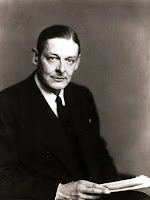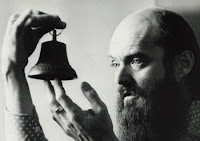I discovered a new Catholic poet yesterday and added a selection of his work to the YIM Catholic Bookshelf. His name is Aubrey Thomas de Vere. I don’t recall how I discovered him actually, because it really wasn’t my doing, I just found him in the Treasure Chest, so to speak. I remember seeing that he had dedicated a book of poems to Cardinal John Henry Newman, though, so I sat up and took notice.
He is an Irish poet of some renown, having lived in the 19th Century, dying early in the Twentieth in 1902. According to the citation in the Catholic Encyclopedia, “a critic in the Quarterly Review of 1896 says of his poetry, that next to Browning’s it shows the fullest vitality, resumes the largest sphere of ideas, covers the broadest intellectual field since the poetry of Wordsworth.”
That is pretty heavy duty talent to be compared to. I think upon further examination of his gift, you will find it an accurate statement. De Vere himself has the following words to say about his poems on sacred subjects,
Poetry, like every other authentic Art, finds, of course, her proper place among the Handmaidens of Religion. Her service, however, is twofold — direct and indirect: and when, without venturing to claim the title of sacred poetry, she yet treats directly on “sacred subjects,” she may too often be charged with intruding into a region more elevated than her own.
To Poetry commonly belongs rather the refracted and coloured beam than the white light ; and the humblest is often the highest offeringwhich she can lay on the Altar. In illustrating that divine beauty which still hangs in broken gleams around a fallen world;—in tracing a love more than human which lives within the human affections;—in cherishing justice and truth as the foundations unremoved amid the fleeting pageantry of outward things;—and in thus inculcating fidelity to the righteous cause, especially when obscured or trampled down;—in doing these things, Poetry discharges a moral function, auxiliary to a higher teaching than her own: and thus much, ‘without departing from her subordinate sphere, she cannot but do in proportion as her inspiration is pure, and her purpose sincere.
In extenuation, then, of attempts which may be condemned as rash, I have only to observe that the sacred subjects touched on in the latter portion of this volume, belong, for the most part, rather to the border land of Religious Philosophy and Art, than to Religion, properly so called.
Which means his work is art alone and not the orthodox poetry of, say, St. Ephrem. Here is an example of one of De Vere’s poems on the sacred.
Law And Grace
It is not true, that unto us, enrolled
Within Christ’s band, the Law exists no longer:
But this is true; that we, who sank of old,
Oppressed beneath that armour’s weight of gold,
Sustain it now in glory, being stronger!
The Form remains: but is a form no more
To eyes inspired, that see
Through bondage Liberty;
And, in His earthly shape, their God adore.
To Love, all things are Love:
To Grace, all things are Grace:
And humble Faith can never move
In an unholy place!
Within, but not beneath, the Law we dwell.
That wall, of old our prison’s circuit, now
(Girding the citied mountain’s sovereign brow)  Is but the bulwark of man’s citadel.
Is but the bulwark of man’s citadel.
Large views beyond are given:
Safe views of all the earth ;
and healing airs of Heaven.
Within the Temple of the Law we stand ;
As once without it stood
That awe-struck multitude ;
And on the marble Tables lay our hand.
There, like the Priest of old, our God we meet :
And stand up boldly by the Mercy-Seat.
De Vere also wrote a sonnet with the same title as well,
Law And Grace
Yes, I remember: once beneath a yoke
We walked, with jealous pride and painful fear:
Then a stern footstep sounded ever near;
And, when that Presence dread His silence broke,
Austere and cold as if a statue spoke,
Each marble sentence smote upon my ear;
Yet ” Thou shalt not” was all that I could hear—
So swiftly from its trance my spirit woke.
The sun was rising. Floods of light divine,
Golden, and crimson on the mountains played.
I saw the village spire like silver shine:
Eolian music filled the echoing shade:
And I could hear, through all the murmuring glen,
Music of moving Gods come down to live with men.
Which did you prefer? Version A or version B? You can read more of Aubrey Thomas de Vere’s poems here.






























